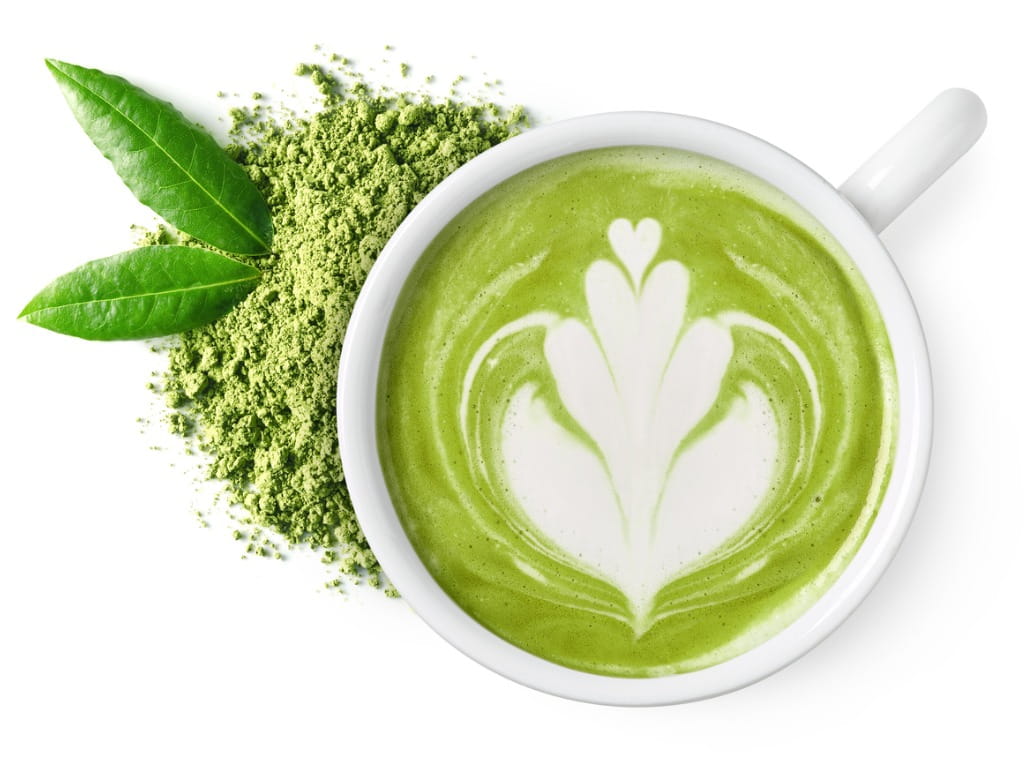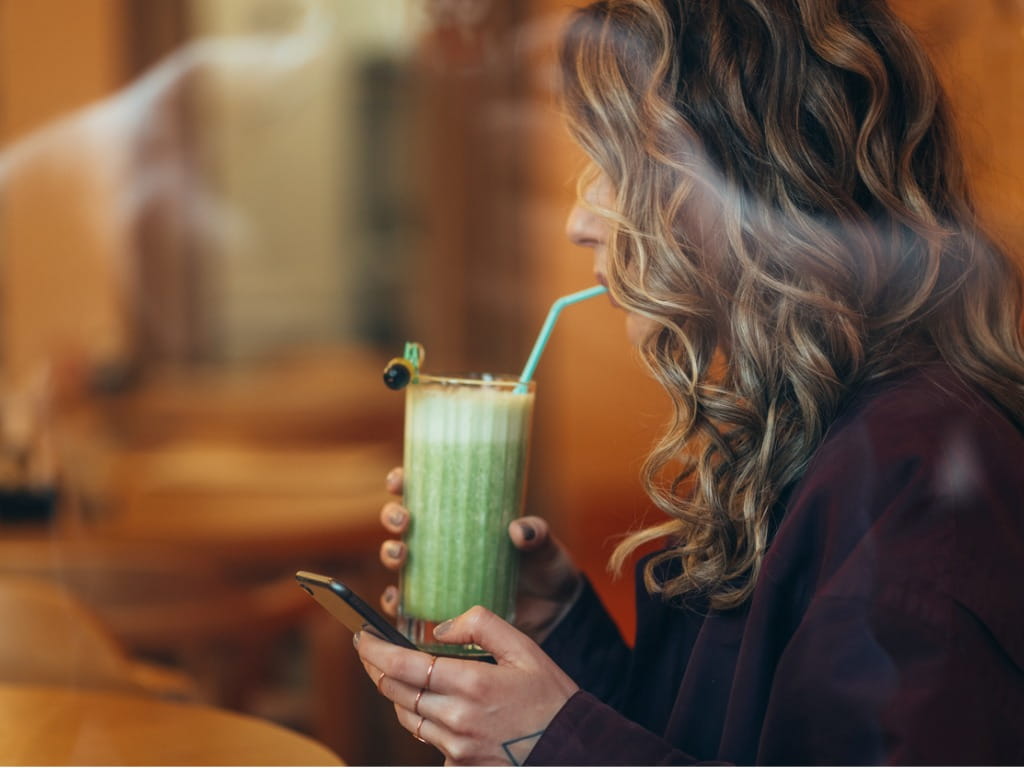Is Matcha Tea Good for You?

The Bottom Line
Matcha is a bright green powder that is often mixed with hot water to form a tea. Because it has a sweet, non-bitter taste, matcha is also used as an additive in desserts and other foods. Matcha contains high amounts of L-theanine and other compounds that may have beneficial effects on inflammation, metabolism, and gut health.

What is matcha?
Matcha, a powdered form of green tea, is derived from the Camellia senensis plant. To make matcha, the plant is grown under shady conditions for several weeks. The growing conditions of matcha are different from those of other traditional teas, which are typically grown in direct sunlight. Once cultivated, matcha leaves are then ground into a powder. The powder is mixed with hot water to create the beverage known as matcha tea. Matcha is consumed as a tea and is also incorporated into cookies, ice cream, and other foods. In addition to being added to foods, matcha formulations, including tea and powder, are often used as a dietary supplement for management of mood, inflammation, and obesity. However, there is limited evidence supporting the use of matcha for medical purposes such as these.
Is matcha green tea?
Matcha has a characteristic vibrant green appearance due to its high chlorophyll content. While matcha tea is a form of green tea, it is grown in a different way than traditional green tea. Because it is grown in the shade instead of under sunny conditions, matcha contains different amounts of caffeine and other biologically active compounds than traditional green tea. In addition, when prepared as a tea, matcha powder is dissolved in water, while traditional teas are steeped in water. Compared with steeping tea leaves, dissolving matcha powder in water allows for the consumption of entire plant leaf in powdered form.
What does matcha taste like?
Much of the taste of green tea is due to the presence of amino acids, including L-theanine, in the tea. Because matcha tea contains higher amounts of theanine than many other teas, it is often described as having a non-bitter, sweet, and roasted taste and odor. Other compounds found in matcha, including sodium, potassium, and gallic acid, may also contribute to the characteristic taste of matcha powder and tea.
Does matcha have caffeine?
Matcha contains caffeine, and the caffeine content of matcha tea is generally higher than that of other green teas. Some types of matcha can contain twice the amount of caffeine present in green tea. However, the caffeine content of matcha may vary depending on growing conditions, climate, and age of the tea leaves.
What are health benefits of matcha?
The natural compounds found in matcha, including phenolic acids, catechins, and vitamin C, are associated with multiple potential health benefits. Phenolic acids are antioxidants. Some research studies suggest that phenolic acids may have beneficial effects on inflammation, blood sugar levels, and metabolism. In animal studies, consumption of the catechins present in matcha was linked to improvements in cholesterol levels and body weight, but there currently is limited evidence supporting the use of matcha for weight management. Vitamin C helps with immunity, and matcha can contain double the amounts of vitamin C that are found in traditional teas. The chemical compounds found in matcha are also associated with improvements in memory, stress, anxiety, and depression in animal studies, but matcha is not a proven treatment for these conditions in humans.
Does matcha make you poop?
The caffeine present in matcha, coffee, and other beverages can enhance gastrointestinal motility and may help regulate bowel function. Caffeine consumption causes an increase in the natural movement of the colon, which results in the urge to defecate. In one study, people experienced an increase in colonic movement within four minutes of drinking coffee, and the rise in colonic motility lasted for at least half an hour.
Does matcha treat anxiety?
Some of the compounds naturally found in matcha, including caffeine and L-theanine, are believed to affect mood and cognitive function. Matcha may affect the activity of the “happy hormones” dopamine and serotonin, and the results of one research study involving mice indicate that matcha may help regulate anxiety and other mood disorders. However, there is minimal human data supporting the use of matcha as a treatment of anxiety.
What do you do if matcha makes you sick?
If unwanted or unexpected symptoms develop after consuming matcha, get guidance from Poison Control immediately. Help from Poison Control is available at www.poison.org and by phone at 1-800-222-1222. Both options are free, confidential, and available 24 hours a day.
Kelly Johnson-Arbor, MD
Medical Toxicologist
Contact information for media requests
Poisoned?
Call 1-800-222-1222 or
Prevention Tips
- Be mindful of your daily caffeine intake. Most healthy adults can safely consume up to 400 milligrams of caffeine daily without experiencing unwanted side effects.
- Tell your doctor about all prescription drugs, over-the-counter medications, and dietary supplements that you are taking.
- Do not use matcha as a treatment for anxiety or depression unless directed to do so by a doctor.
This Really Happened
In a study evaluating the effects of matcha consumption on gut health, thirty-three healthy university students consumed a matcha or placebo drink twice daily for two weeks. There were no changes noted in the frequency of the study participants’ bowel movements. Investigators discovered that the individuals who consumed the matcha beverage had an increased amount of beneficial gut bacteria and a decreased amount of harmful gut bacteria found in their feces, when compared with the placebo group. The study investigators concluded that matcha green tea consumption may be beneficial for gut maintenance and overall health (from Morishima et al., 2023).For More Information
References
Brown SR, Cann PA, Read NW. Effect of coffee on distal colon function. Gut. 1990 Apr;31(4):450-3.
Poisoned?
Call 1-800-222-1222 or
Prevention Tips
- Be mindful of your daily caffeine intake. Most healthy adults can safely consume up to 400 milligrams of caffeine daily without experiencing unwanted side effects.
- Tell your doctor about all prescription drugs, over-the-counter medications, and dietary supplements that you are taking.
- Do not use matcha as a treatment for anxiety or depression unless directed to do so by a doctor.
